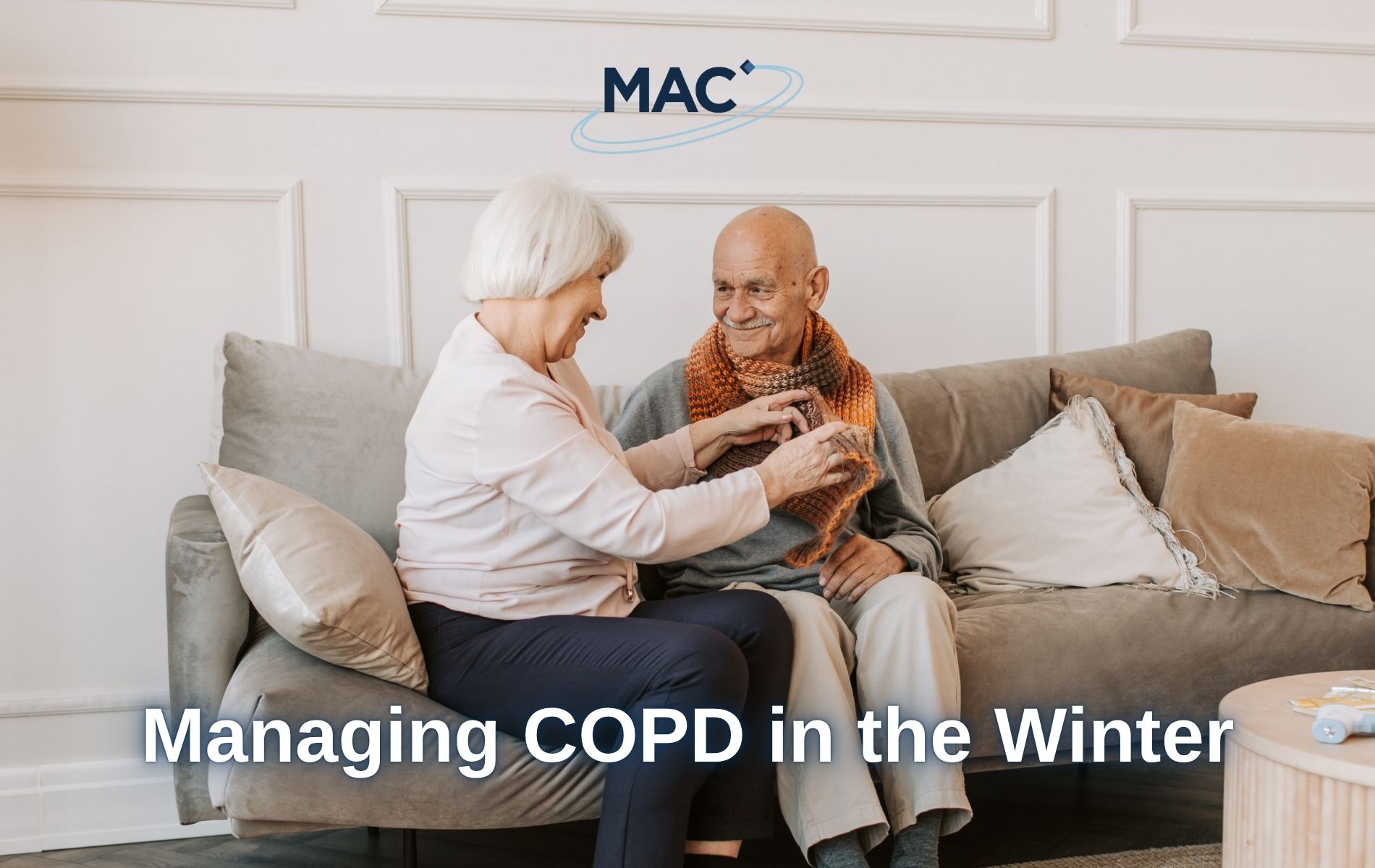Winter can be a challenging season for people living with Chronic Obstructive Pulmonary Disease (COPD). Cold, dry air, increased indoor pollutants from fireplaces, and seasonal viruses all contribute to a higher risk of flare-ups and respiratory distress.
But with the right strategies, you can protect your lungs and maintain your quality of life throughout the colder months.
What is COPD?
COPD is a progressive lung condition that includes chronic bronchitis and emphysema. It affects breathing, energy levels, and overall quality of life. Sadly, around 30,000 people die each year from COPD in the UK, making it the second biggest cause of death from lung disease1, after lung cancer and followed by pneumonia.
While there’s no cure, self-care plays a vital role in managing symptoms, preventing flare-ups, and improving long-term outcomes.
Why Winter Is Tough on COPD
Cold air can cause airways to constrict, making it harder to breathe. Temperatures below 3°C are particularly risky, as your body works harder to stay warm, increasing strain on your heart and lungs.
Winter’s drier air also thickens mucus, which can block airways and worsen symptoms. Additionally, winter is peak season for respiratory infections like flu, RSV, and COVID-19, which can trigger dangerous exacerbations.
Studies have found COPD patients experienced 56.6% more exacerbations in winter compared to summer2.
Top Tips for Managing COPD in Winter
- Stay Warm and Layer Up – Dress in layers and wear scarves or snoods over your nose and mouth when outside. This helps warm and humidify the air before it reaches your lungs, reducing irritation.
- Avoid Fireplaces and Smoke – While cosy, fireplaces release smoke and particles that can irritate your lungs; use electric heaters or warm blankets instead, as fine particle matter has been linked to an increase in COPD hospitalisations3.
- Hydrate and Humidify – Dry air can dehydrate your body and thicken mucus. Drink plenty of fluids and consider using a humidifier to maintain indoor moisture levels.
- Prevent Illness – Get vaccinated against flu, COVID-19, and RSV, if advised to do so by your medical practitioner. Wash your hands frequently, avoid crowded places, and ask sick visitors to reschedule.
- Stick to Your Treatment Plan – Continue taking prescribed medications and carry rescue inhalers when you go out. If you use supplemental oxygen, ensure your equipment is winter-ready. Studies have shown that up to 80% of patients with very severe COPD will use supplemental oxygen4.
- Create a Winter-Ready Kit – Keep essentials like tissues, masks, hand sanitiser, and throat lozenges on hand. These items help you respond quickly to symptoms and stay safer in public spaces.
- Know the Signs of a Flare-Up – Watch for increased breathlessness, coughing, changes in sputum colour, or fever. Seek medical help promptly to prevent complications. In one analysis of hospital admission rates, winter admissions for COPD were 66% greater than summer admissions5.
Are you Living with COPD?
Managing COPD in winter requires preparation, awareness, and proactive care. By following these tips, you can reduce your risk of flare-ups and enjoy a safer, more comfortable season.
Here at MAC Clinical Research, we are committed to improving quality of life for people living with COPD through clinical trials investigating potential new treatments. If you are aged 40 to 75 with COPD, you could be eligible to take part in our latest COPD clinical trial.
Eligible participants will receive up to £2,425 for their time and commitment, plus reasonable travel expenses or transport to clinic visits is provided. MAC can also accommodate for caregivers to attend clinic visits as chaperones.
For more information and to see if you could be eligible, register your interest via our COPD study page.
2 Primary Care Respiratory Journal – Deprivation, winter season, and COPD exacerbations
3 CHEST Pulmonary – Association of Short-Term Increases in Ambient Fine Particulate Matter With Hospitalization for Asthma or COPD During Wildfire Season and Other Time Periods
4 International Journal of Chronic Obstructive Pulmonary Disease – Oxygen therapy in acute exacerbations of chronic obstructive pulmonary disease
5 Asthma and Lung UK – Inhale the facts: Countdown to 2024




